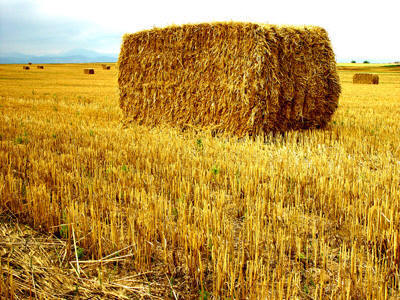Rhetorical or what?
“If it happened in Sydney, it belongs in the Dictionary” claims the Project. You would think that there needs to be some evidence that ‘it’ actually did happen if ‘it’ is to be subjected to the dictionary - but is that the case?
Take for example this extract from the most recent Project newsletter: "When the British got busy naming points and places around the settlement at Sydney Cove, they inscribed a nomenclature that ... paid homage to ... to His Majesty's cronies..."
‘What’s in a Name?’, Dictionary of Sydney Project, e-Newsletter June 2006 - also featured on ‘News & Updates’ page of Project website
No evidence is provided for this statement - either that George III had any cronies, or that any places were actually named in honour of these cronies. The writer of the piece distinguishes between cronies and ‘patrons, supporters, political officials, and themselves’. There are clearly particular people and place names in mind. Perhaps the Duke of Cumberland whose title forms the county name? If cronyism is an aspect of corrupt business practices, where is the evidence of the King engaging in corrupt commercial activities with a cohort of corrupt family members (the title being that of one of the King’s brothers, and later of one of his sons)? Considering that the 1780s had seen a gradual strengthening of parliamentary power over royal power, and that George III’s prophyry was entering its disabling stage by 1788, doesn’t this seem a little far-fetched?
While the article is generally a good introduction to the history of place naming in Sydney, the use of such rhetorical and unverified language is disconcerting, to say the least. The Project might say ‘it’s just a newsletter article, not a dictionary entry’, but does that excuse a lack of verification or fairness in a publicly-funded Project that purports to be historically accurate and reasoned? There is a certain irony in the Wikipedia (the Project’s nemesis) entry for one of the dukes of Cumberland: There is, however, little to no historical evidence that any of these events were more than rumor.
Take for example this extract from the most recent Project newsletter: "When the British got busy naming points and places around the settlement at Sydney Cove, they inscribed a nomenclature that ... paid homage to ... to His Majesty's cronies..."
‘What’s in a Name?’, Dictionary of Sydney Project, e-Newsletter June 2006 - also featured on ‘News & Updates’ page of Project website
No evidence is provided for this statement - either that George III had any cronies, or that any places were actually named in honour of these cronies. The writer of the piece distinguishes between cronies and ‘patrons, supporters, political officials, and themselves’. There are clearly particular people and place names in mind. Perhaps the Duke of Cumberland whose title forms the county name? If cronyism is an aspect of corrupt business practices, where is the evidence of the King engaging in corrupt commercial activities with a cohort of corrupt family members (the title being that of one of the King’s brothers, and later of one of his sons)? Considering that the 1780s had seen a gradual strengthening of parliamentary power over royal power, and that George III’s prophyry was entering its disabling stage by 1788, doesn’t this seem a little far-fetched?
While the article is generally a good introduction to the history of place naming in Sydney, the use of such rhetorical and unverified language is disconcerting, to say the least. The Project might say ‘it’s just a newsletter article, not a dictionary entry’, but does that excuse a lack of verification or fairness in a publicly-funded Project that purports to be historically accurate and reasoned? There is a certain irony in the Wikipedia (the Project’s nemesis) entry for one of the dukes of Cumberland: There is, however, little to no historical evidence that any of these events were more than rumor.


0 Comments:
Post a Comment
<< Home